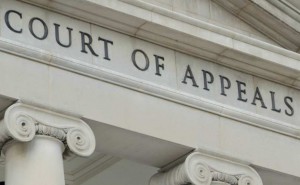No Constitutional Right To Counsel For Criminal Defendants In the New York Court of Appeals
People v. Grimes
2018 NY Slip Op07038
2018 WL 5259792
New York Court of Appeals
Decided on October 23rd, 2018
ISSUE
Whether a defendant can resort to a writ of errors coram nobis and the right to effective assistance of counsel to bypass the time limitation set by statute in CPL 460.30 in which to file a CLA ( Criminal Leave Application) seeking leave of appeal to the Court of Appeals where the defendant’s counsel neglected to send the CLA letter.
HOLDING
The New York Court of Appeal held that a defendant may not resort to a writ of errors coram nobis where he argues ineffective assistance of counsel to bypass the time limitations set by CPL 460.30 because there is no federal constitutional right to appellate review and no state constitutional right to appellate review in a criminal case. The Sixth Amendment does not encompass the right to appeal or the right to counsel in appellate proceedings, nor does due process guarantee the right to an appeal.
FACTS OF THE CASE
In 2012, Jakim Grimes was found guilty of criminal possession of controlled substance in the third degree and criminal possession of a controlled substance in the fourth degree. Defendant’s counsel filed a notice of appeal and on November 13, 2015, the Appellate Division affirmed the judgement of conviction. The defendant was required to make an application for a certificate granting leave to appeal for a discretionary, second-tier appeal to the Court of Appeals. The next day, counsel wrote to the defendant to let him know that he was in the process of drafting the leave application to the court of appeals and he should receive it shortly. Counsel proceeded to draft the CLA letter, but never filed it with the Court. On January 20, 2017, defense counsel moved for coram nobis relief in the Appellate Division requesting an extension of time to file an application for leave to appeal to the Court of Appeals.
Counsel claimed the defendant was deprived of his right to due process and his right to counsel under article I, section 6 of the New York State Constitution as well as under the Sixth and Fourteenth Amendments of the United States Constitution when his attorney failed to file a petition for leave to appeal with the Court of Appeals. He claimed that the CLA (Criminal Leave Application) was not filed in a timely manner due to his lack of oversight and the law office’s failure.
COURT ANALYSIS
The Court held that a defendant may not resort to a writ of error coram nobis to bypass the time limitations set CPL 460.30 because there is no federal constitutional right to counsel under the Due Process Clause on a second-tier appeal. The Court made a clear distinction between a first-tier appeal and a second-tier appeal: the U.S. Supreme Court has long established that when a state grants a defendant the absolute right to appeal a criminal conviction, the Fourteenth Amendment mandates that to provide a meaningful first-tier appeal, the defendant must be afforded the right to counsel. Douglas v. California, 372 U.S. 353, 356-357 (1963). This is because the first-tier appeal is an integral part of the trial system for finally adjudicating the guilt or innocence of the defendant.
However, the critical issue in a second tier appellate court tis not whether there has been a correct adjudication of guilt in every individual case, but rather whether the subject matter of the appeal has significant public interest, whether the case involves legal principles of major significance to the jurisprudence of the State or whether the decision below is in probable conflict with a decision of the Supreme Court.
No greater protection under the New York State Constitution for appeals to the New York Court of Appeals.
While the New York Court of Appeals has recognized that the State Constitution may provide greater rights that those provided by the Federal Constitution, this is not one of those instances in which, after analyzing the particular case and the Federal constitutional rule at issue, it can be said that establish New York law and traditions mandate that some greater degree of protection must be given.
In New York State, there is no constitutional right to an appeal for defendants in non-death penalty criminal cases. There is only a statutory right to seek permission for such an appeal at the second-tier level
Similar to the Federal Courts, the absolute right and basic entitlement of a criminal defendant to appellate consideration of a first-tier appeal does not carry forward to a discretionary second-tier appeal in the state of New York. The primary reasons being that the appellate records and briefs from the first-tier are readily available to both the second-tier court and a pro-se defendant for a CLA. Therefore, the representation by counsel is not mandated by due process for a meaningful review of the CLA.



